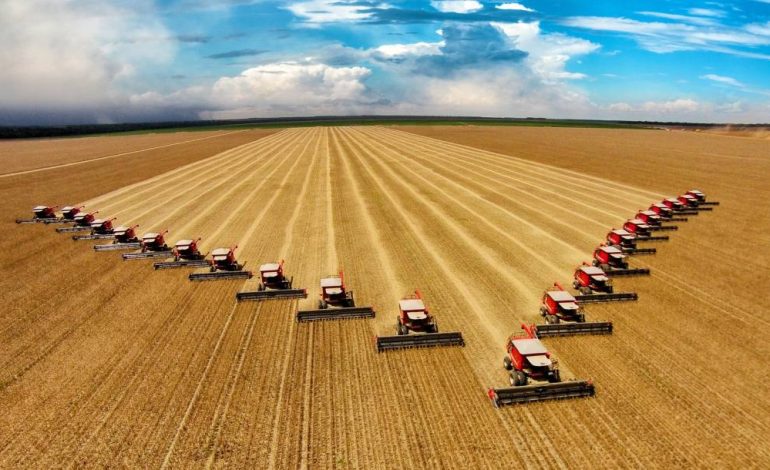The Importance of Ecological Sustainability in Food Systems

Food systems play a central role in our lives, providing the nourishment necessary for survival and well-being. However, the impact of these systems on the environment has become a growing concern. Ecological sustainability in food systems is no longer just an option; it is a necessity. As the global population continues to rise and climate change intensifies, there is an urgent need to rethink how food is produced, distributed, and consumed. By focusing on ecological sustainability, we can create food systems that not only meet the needs of today but also preserve the planet for future generations.
Reducing Environmental Impact
Agriculture is a significant contributor to environmental degradation, accounting for a substantial portion of greenhouse gas emissions, deforestation, water use, and soil depletion. Conventional farming practices, such as monocropping and the heavy use of synthetic fertilizers and pesticides, have led to a loss of biodiversity, soil erosion, and water pollution. To mitigate these impacts, it is crucial to adopt sustainable farming practices that work in harmony with nature rather than against it.
Agroecology, for example, promotes farming methods that enhance biodiversity, improve soil health, and reduce reliance on chemical inputs. Techniques such as crop rotation, intercropping, and organic farming can help maintain the balance of ecosystems while also increasing the resilience of food systems to environmental changes. By prioritizing ecological sustainability, we can reduce the environmental footprint of agriculture and ensure that natural resources are preserved for future generations.
Promoting Food Security and Resilience
Ecological sustainability in food systems is also closely linked to food security and resilience. As climate change leads to more frequent and severe weather events, such as droughts, floods, and heatwaves, the stability of food systems is increasingly at risk. Sustainable practices that enhance the resilience of food systems are essential for ensuring that communities can continue to access sufficient, safe, and nutritious food in the face of these challenges.

Diverse and resilient agricultural systems are better equipped to withstand environmental stresses and recover from disruptions. For instance, polycultures—agricultural systems that cultivate multiple crops in the same space—can provide greater protection against pests, diseases, and extreme weather conditions compared to monocultures. Additionally, preserving and promoting traditional knowledge and practices, such as seed saving and local food production, can strengthen the resilience of food systems at the community level.
Supporting Local Economies and Communities
Sustainable food systems are not only beneficial for the environment but also for local economies and communities. By promoting local food production and consumption, communities can reduce their dependence on long-distance food supply chains, which are often vulnerable to disruptions and contribute to high carbon emissions. Supporting local farmers and food producers through initiatives such as farmers’ markets, community-supported agriculture (CSA), and farm-to-table programs can create jobs, stimulate economic activity, and foster a sense of community.
Local food systems are also more adaptable to changing environmental conditions, as they can be tailored to the specific needs and characteristics of the region. This adaptability is crucial in the face of climate change, as it allows communities to develop food systems that are more resilient to local environmental challenges. Furthermore, local food systems often promote a greater connection between consumers and producers, encouraging more sustainable consumption patterns and reducing food waste.
Enhancing Public Health and Well-Being
The link between ecological sustainability and public health is undeniable. The way food is produced and consumed has a direct impact on the health and well-being of individuals and communities. Sustainable food systems that prioritize organic farming, reduced pesticide use, and local production can lead to healthier diets and improved nutrition. Additionally, reducing the environmental impact of food systems can contribute to cleaner air, water, and soil, which are essential for public health.
Moreover, sustainable food systems often emphasize the consumption of plant-based foods, which have been shown to have numerous health benefits, including reducing the risk of chronic diseases such as heart disease, diabetes, and cancer. By promoting sustainable diets that are rich in fruits, vegetables, whole grains, and legumes, we can improve public health outcomes while also reducing the environmental impact of food production. Websites and organizations dedicated to sustainable living and eating, like Sustainable Food Trust, provide valuable resources for individuals looking to make more environmentally conscious food choices.
Conclusion
Ecological sustainability in food systems is essential for the well-being of our planet and its inhabitants. By reducing the environmental impact of agriculture, promoting food security and resilience, supporting local economies, and enhancing public health, we can create food systems that are not only sustainable but also equitable and resilient. The challenges posed by climate change and a growing global population make it clear that we must act now to transform our food systems. By embracing ecological sustainability, we can ensure that future generations inherit a healthy and thriving planet.








